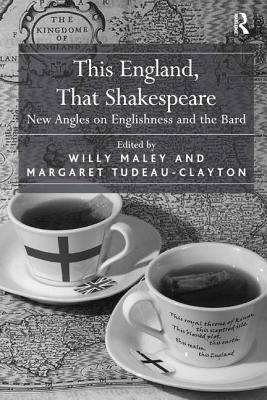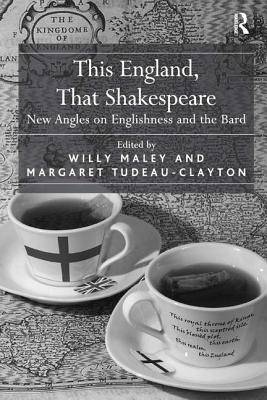
- Retrait gratuit dans votre magasin Club
- 7.000.000 titres dans notre catalogue
- Payer en toute sécurité
- Toujours un magasin près de chez vous
- Retrait gratuit dans votre magasin Club
- 7.000.0000 titres dans notre catalogue
- Payer en toute sécurité
- Toujours un magasin près de chez vous
This England, That Shakespeare
New Angles on Englishness and the Bard
Margaret Tudeau-Clayton
Livre relié | Anglais
305,45 €
+ 610 points
Format
Description
Is Shakespeare English, British, neither or both? Addressing from various angles the relation of the national poet/playwright to constructions of England and Englishness, this collection of essays explores the interplay of nation and imagination, first through new readings of particular plays, then through analyses of a range of subsequent appropriations and reorientations of 'Shakespeare' and 'this England' that the plays - in part - produced.
Spécifications
Parties prenantes
- Auteur(s) :
- Editeur:
Contenu
- Nombre de pages :
- 272
- Langue:
- Anglais
Caractéristiques
- EAN:
- 9780754666028
- Date de parution :
- 28-09-10
- Format:
- Livre relié
- Format numérique:
- Genaaid
- Dimensions :
- 156 mm x 234 mm
- Poids :
- 557 g

Les avis
Nous publions uniquement les avis qui respectent les conditions requises. Consultez nos conditions pour les avis.






